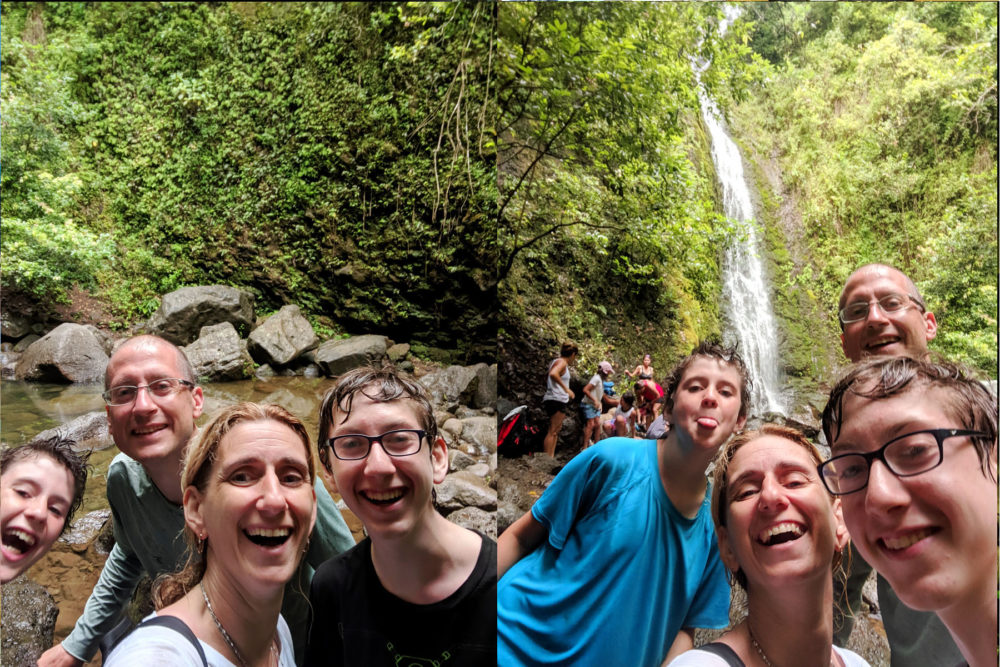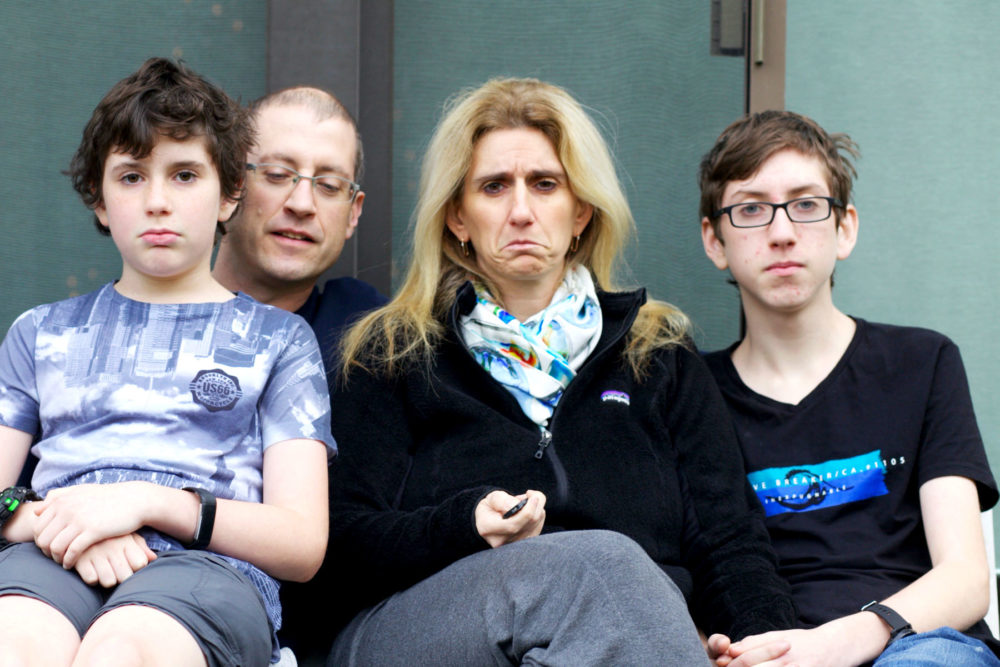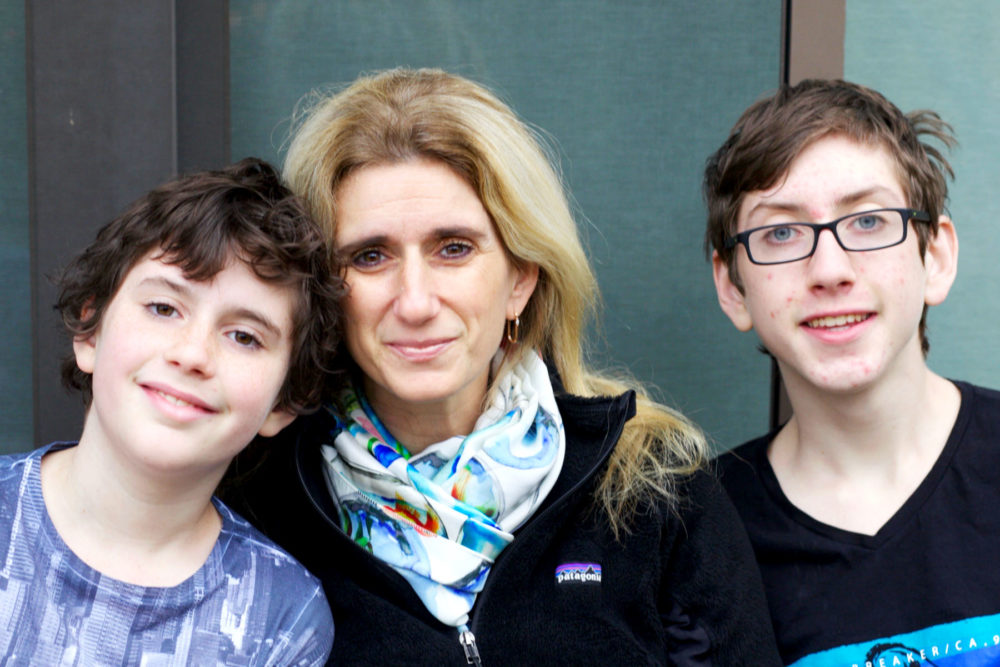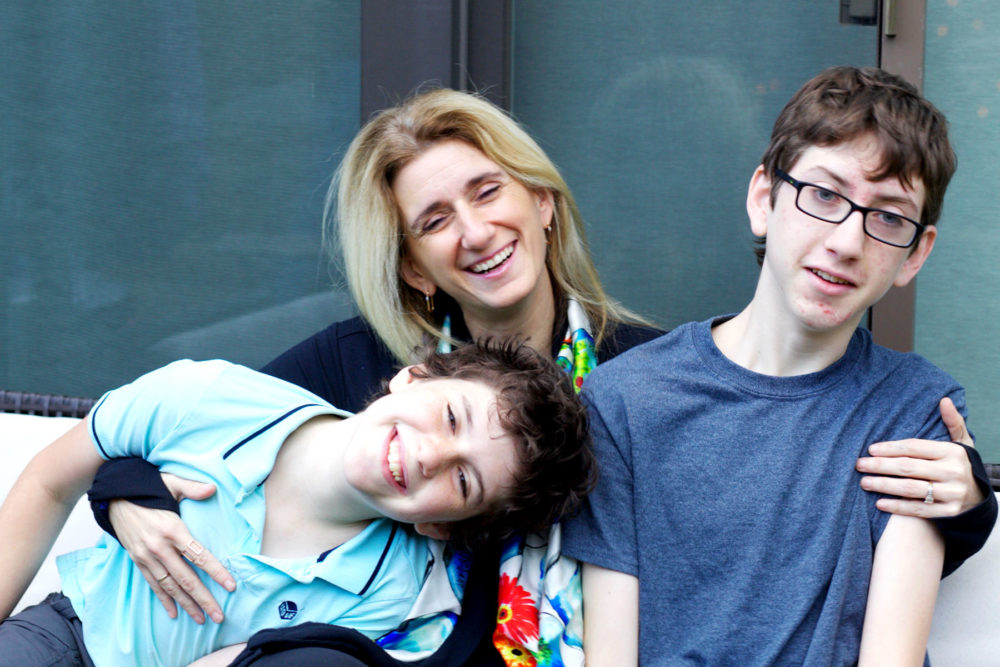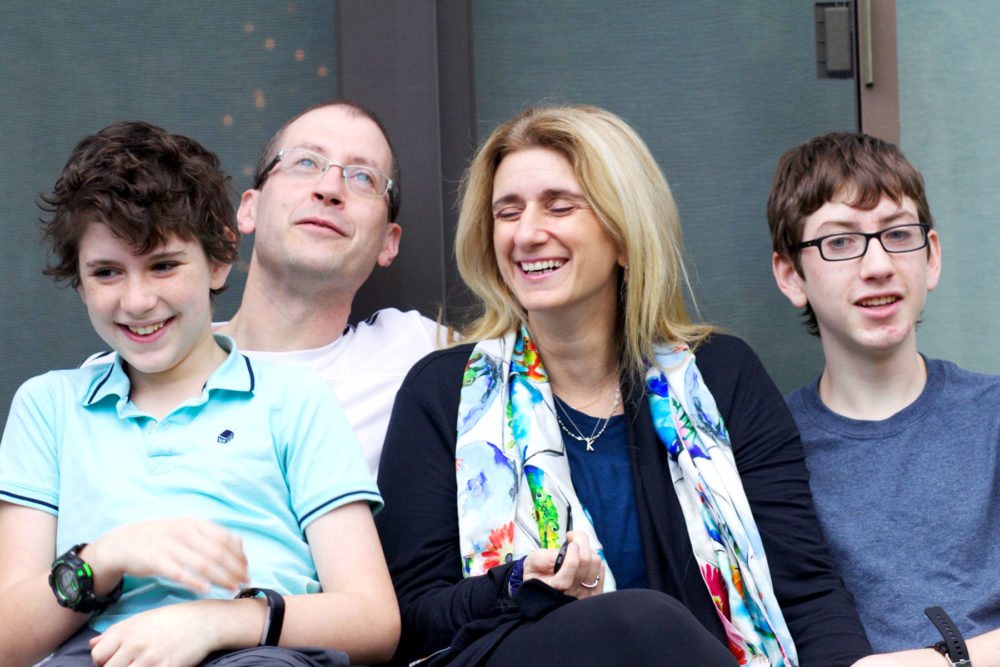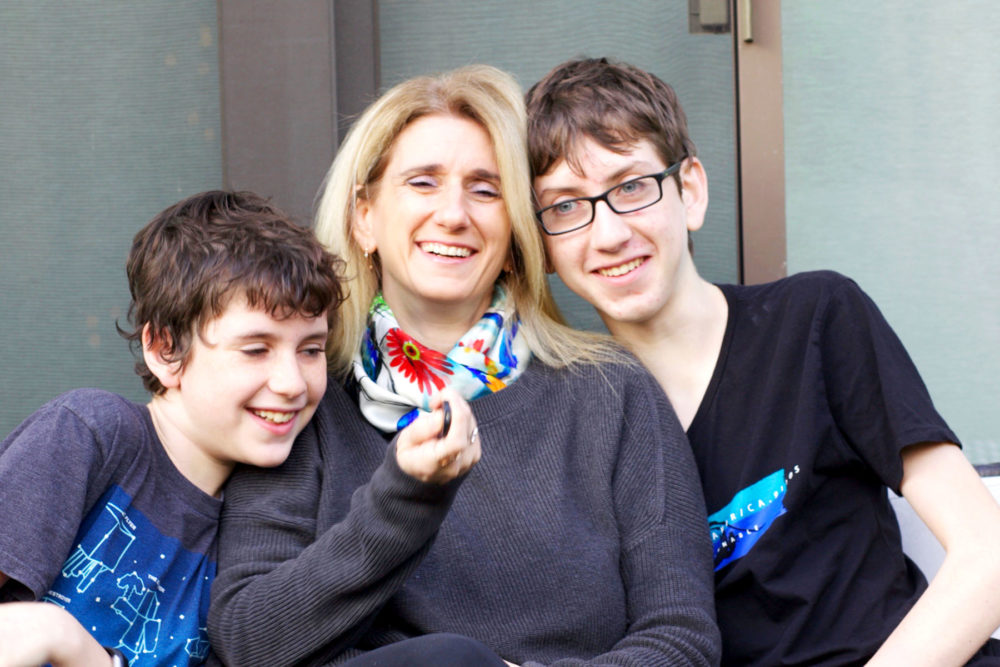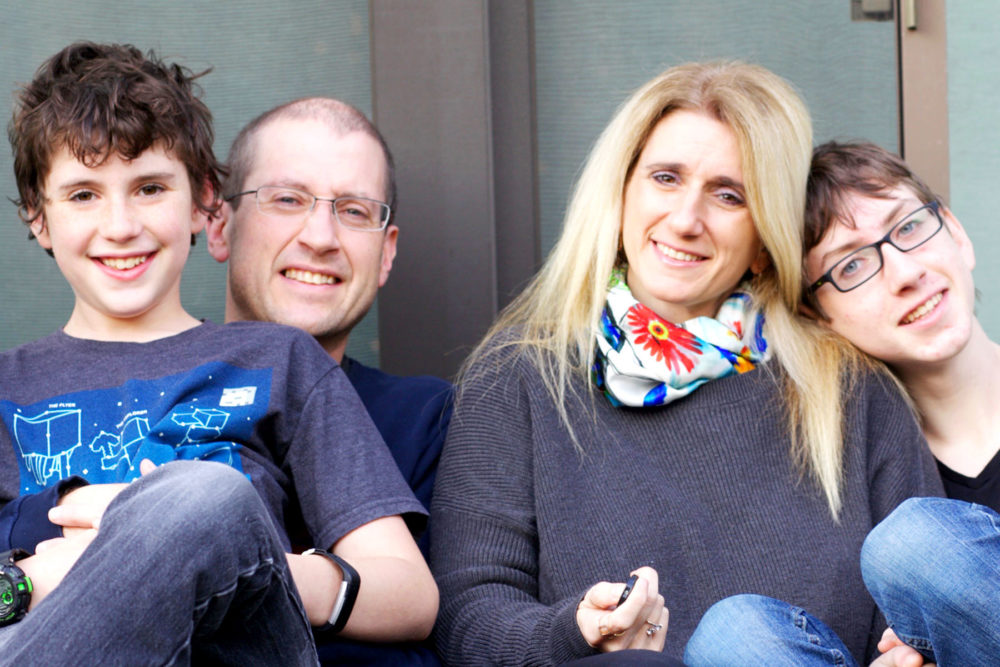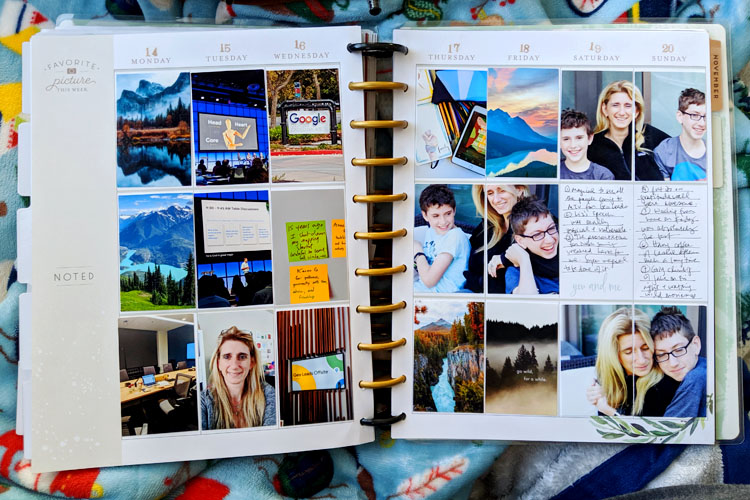














Like last year, I’m trying to put all the 2019 books here so I can start fresh next week. Here are my goodreads reviews. If you’re on goodreads, add me as a friend so I can see your books too! I’ve also started an instagram account where I join my love of reading with my love of art.
Love’s Executioner (3 stars): I had heard about this book in a different book and was so excited that I went off an immediately bought it with my audible account. But, as soon as I checked some of the reviews, I wasn’t sure I wanted to read it after all. It looked like the author (therapist) was misogynistic, unlikeable, and judgmental. I considered putting it down before I even began.
But I am glad I didn’t.
These stories were very interesting and unique and showed me the variety of lives/conundrums/problems people have in the world and I loved how the “cases” didn’t always get resolved and even when they did, it sometimes wasn’t really due to his help. One of the lessons I took away was that things can be really not what they seem and when people come to tell you their story, it’s fully filtered through their interpretation of truth. Not the truth itself. I knew this already but there were some acute examples of this.
It was interesting to see how the therapist was thinking and how and where and when he chose to take action. How frustrated, flawed and wrong he could be. I really appreciated the vulnerability. Even if he was judgmental, most people are and they are just never willing to admit it. Maybe because I’d read the reviews, I was expecting it.
In the end it was a very interesting and unusual book and I am glad I read it. I can’t say I loved it but I learned from it.
Night of Miracles (4 stars): I just love Elizabeth Berg. Her stories are smooth balms for my soul, they make me feel better about humankind, they make me smile and feel grateful and hopeful all at once. It’s not that it’s all pink bubbles in her stories, sad things happen, people make mistakes, people can be judgmental or real. But it’s that they are all redeemable. They all mean well and come together and grow and learn and support each other. They surprise you in the most beautiful ways. It restores your faith in humanity. This week, it was exactly what I needed.
The Year of No Nonsense (3.5 stars): I have a lot of thoughts about this book. First thing I will say is that I generally try to read a book without reading the reviews. Sometimes, in the middle of the book, I’ll go and see what others wrote. In this case, I was a bit surprised at the unequivocal positive reviews. This is a good book, but in my opinion the reviews feel a bit slanted. I am pointing this out because it might be that I am reacting to this as I sit down to write mine and I am moving to the middle a bit more to course correct. So please take this with a grain of salt.
I like the premise of this book and how she focuses on your digging deeper to get to the crux of the matter instead of fixing the surface issues or the outcomes of the actual problem.
“Paradox is a very helpful tool for me, which is why I mention it here. We are not required to be black-and-white about our lives—we can be all the colors of the rainbow and every shade in between.”
One of the things I loved most about this book was how honest it was and how it didn’t make things sound simple as some of the books can.
“During my Year of No Nonsense, I learned that seeing what is and what was is a fundamental requirement for change.”
A very hard distinction at times.
“My job (as a parent) is to be a support for my children. The children are not here to fulfill my needs. They are not here to reflect my own “greatness” (or lack thereof). I am here to support them in their journey of growing up—not dictate how their journey goes.”
This resonated with me so much. I don’t usually worry about this but I do see it creeping in now and then and I love the way she put it. I am here to support them in their journey. So well put.
“But as a starting point, we might want to take Numbers like body weight and social media followers and put them in the box where they belong—a box of data points that can be charted, not a box of soul points that describe who we are.”
So much to unpack in this one, too. We anchor on numbers cause they are easy. I do a lot of rock climbing now and it has numbers and levels and I was telling my husband the other day how I wish the routes had no numbers so I couldn’t have any preconceived ideas of which routes I could and couldn’t do. Then I’d have to try each and I’d probably learn so much more. Numbers can help but they can also hinder so much.
“Stepping into beliefs, therefore, can be powerful or destructive. So when a belief has a negative or destructive power, like “you will never be a runner,” true Grit and growth happen when we question or challenge that belief.”
I’ve written and thought about this concept a lot. Identity can help or get in the way of how we move forward so much. And shifting one’s own identity can be so hard.
“The challenge is to Live each day as the best version of yourself. To make room for your own light and Purpose for your Life. To do the best you can and accept that you are doing so; to assume the Other People are doing the best they can, too—if not because it’s the right thing to do, then because at least they won’t drive you crazy.”
In the last week, I’ve been reminding myself to do this again and again and again. It totally works. It helps keep your sanity and it reminds you to focus on what you can change (your thoughts and actions) and the truth (which you never fully know so just assume the best because it’s so much more uplifting.)
So there was a lot of gold in this book, a lot of food for thought, a lot of honesty. I will say that there was also some repetition and the last 30% took me forever to get through and I was so tired of the word nonsense by then. It was too overused and I was feeling annoyed. There were a lot of ideas I’d already read before or seen but it was woven well together. I also felt like I could have used more help with guidance around getting to the root issue myself. Finding my true nonsense. Because much of the book makes the case for it (sold. i believe i need to get to the real heart of the matter before I can change things.) and then she talked about now that i know it what do i do (Except I still wasn’t sure I knew mine. Sometimes the cause and outcome can be so intertwined and I just felt lost.) I would have loved some examples of how others (along with her) peeled that onion.
As with most good books that are about working on yourself, nothing changes unless I do the work. This book was a good reminder that it’s possible and it highlighted the value of calling yourself on your own bullshit if you’d like to make positive change in your life. I will take what works for me and leave the rest. There was enough gold in here to keep me thinking, moving and focused.
With thanks to netgalley and hachette books for an advanced copy in return for an honest review.
Anyone (3 stars): Ok so as an avid reader, I know there’s a time to read a book and a time when I am just not in the right place for a book. I am going to assume that’s what happened with this one. Everyone loved this book. Even people who didn’t like Soule’s first book loved this one. I actually really liked his first book. And I didn’t hate this one at all but I didn’t love it. There was too much going on and I was having to suspend my disbelief more and more and more and at some point I just didn’t even care. It felt too over the top. Too convoluted. Too many twists on top of twists. If you’re in the right mood, I can see you totally might love this one. For me, it came at the wrong time.
When We Were Vikings (3 stars): “Everyone is a hero in their own lives,” he said. “That’s by default. But I wanted you to see that sometimes the world thinks something is not possible, but it turns out that they can be wrong. Even fancy scientists can be wrong.”
“Sometimes the most important things don’t fit on lists,” I said.
I dislike it when a book is compared to other books I’ve read and loved. Especially when it turns out that the comparisons aren’t accurate. This book is compared to The Silver Linings Playbook and The Curious Incident of the Dog in the Night-Time. I think it’s like neither.
This is the story of Zelda, who has fetal alcohol syndrome and is living with her brother Gert. She’s a huge fan of Vikings and rules. The book is her quest to try to save her brother. It is a heart-warming book but it also has a lot of very serious topics and trigger warnings.
For some reason, I thought it would be a sweet, cute book. It is not.
It’s a touching book but it is serious. It has violence, it has parts that made me angry and parts that made me sad and also parts that made me hopeful. But the whole time, the hardest part was to get past the expectation that this book would be lighter than it actually was. So I want to set the expectations right in case you’re like me. This is not a light and fluffy book. It threw me off that there are a lot of quirky parts to this story and the characters come off a bit like quirky and yet the subject matter is so so serious and the topics covered are also very serious and not at all quirky. I guess this is where it tried to be like Silver Linings Playbook but I didn’t feel like it hit the mark as solidly.
It did gave me a lot to think about and I am glad I read it.
with gratitude to Gallery/Scout press and netgalley for an advanced copy in return for an honest review.
The Lost Book of Adana Moreau (4 stars): Maxwell closed his eyes and thought of nothing and everything, all at once, just as Saul had taught him, as if he were walking through a dark labyrinth, the center of which was bathed in moonlight, or, like his missing father, sailing through an endless dark blue sea toward something unknown. Then he opened his eyes and began to read.
This is one of the most unusual books I’ve read in a while. The whole time I was reading it, I wasn’t sure if I liked it or not. I wasn’t fully sure what was happening or where the story was going. And even after finishing the book, I am not fully sure how I feel about it. I want to make sure to mention that this is not a “plot” driven book. Not much happens in this book. Actually that’s not true. A lot happens in this book, but it’s like you get to know each character and their life story and how they get to be where they are and who they are so there is a lot happening but none of it is a single plot the story follows. The only plot is really that Saul finds Adana’s book and wants to return it to her son as his grandfather requested. That’s the actual plot. The rest is really the story of each of the characters. There are a lot of historical events and politics in this book surrounding the lives of each of the characters.
Some parts where more interesting to me than others and I loved the writing throughout but I didn’t fall in love with the book until I read how Maxwell and Saul’s grandfather meet. That section was by far my very favorite of the book.
In the end I loved my time with this unusual story.
But no matter how much we think we know, we end up knowing so little of our parents and even less of our grandparents, most lives are forgotten as soon as they’ve occurred.
with gratitude to netgalley and Hanover Square Press for an early copy in exchange for an honest review.
A Good Neighborhood (4 stars): “Valerie understood that while her son did and always would hold her heart in his hands, the fact of being a parent was that her son’s heart was and must be reserved for someone else.”
There’s so much to say about this book. So much I liked and so much I didn’t like. I thought a lot about how I should rate it and what it meant to me. I read this book in one sitting, and found myself attached to most of the characters and caring deeply about where it was going even as I knew it was going to be a train wreck of a book. Even as I knew I was being manipulated as a reader. I still couldn’t put it down. The writing was beautiful and compelling and I decided it deserved a high rating just for that.
There’s a lot going on in this book. Some of it felt completely unnecessary. I felt the author went more stereotypical and villain that I would have liked for some of the characters. It oversimplified the story and didn’t do justice to the complexity of racial issues and how they are there even when the person isn’t a totally disgusting person. There were hints of that as the neighborhood reacted to everything and there were some glimpses of that but overall I think the book made things too black and white and too preachy. My biggest beef was with Brad. There was just nothing redeemable about him in the book. There were glimpses to how nice he was being to Lily but it just wasn’t enough. Also I felt like the ending felt a bit rushed and didn’t really feel true to character, especially with Julia.
I did fall in love with Valerie and Xavier though and this book broke my heart in all the ways it was meant to.
with gratitude to netgalley and St. Martin’s Press for an advanced copy in exchange for an honest review
The Murmur of Bees (4.5 stars): I loved this book from the very beginning. This beautiful story of a family that adopt the little baby, Simonopio, who is disfigured and surrounded by bees. This boy that saves the family again and again. The story of love, loss, brotherhood, sacrifice, and family. It reminded me of Gabriel Garcia Marquez, whom I adore. If you like long, well-written family sagas with a historical backdrop and wonderful, memorable and well-developed characters, you will love this book.
Apeirogon (5 stars): “I will tell it until the day I die, and it will never change, but it will keep on putting a tiny crack in the wall until the day I die.”
Column McCann is an incredible writer. This book has a format that will appeal to some and put off others. It worked for me. The book is the story of two men, one Palestinian and one Israeli, who both have lost daughters. They come together to help spread peace.
“I tried to hide it from my fellow prisoners but something in me changed—or maybe it hadn’t, but something was coming from a new direction, maybe I had just found something that was there all along.”
The book travels back and forth in time, in and out of fiction and non fiction, it stops in the middle of a scene and then picks it up pages later. It repeats bits and pieces. It has not just a purpose and a story but also a rhythm.
“Sometimes it feels like we’re trying to draw water from the ocean with a spoon, but peace is a fact.”
And it breaks every little part of your heart. It shows how awful we humans can be. It shows how awful we humans are. How we treat each other. In many parts, I was reminded of the Brene Brown quote about how we try to make people “other” and “not human” so we can hate them or hurt them and how when we get to know them as fellow humans, it becomes so much harder to write them off, to harm them.
“We need to learn how to share this land, otherwise we will be sharing it in our graves.”
I had never heard of the story of Rami and Bassam. It was eye opening, heartening and of course completely heartbreaking. I do not wish this type of loss on my worst enemy and I have unbounded respect for their ability to take such profound loss and turn it into an opportunity to broker peace. To still be able to love and not let the hate take over.
“Bassam clicks his tongue and half-smiles. A familiar and hopeless gesture: they can travel together anywhere in the world, but not these few miles.”
The day to day lives of people living in the West Bank are shared in detail in this story. Once you read it, it becomes impossible to un-know it. It becomes impossible to not let it get to you.
“The only interesting thing is to live.”
Everything about this book worked for me. I was blown away by it. By all the facts. By all the back and forth. By the terrible tragedies. By the senseless deaths. By the tireless fight for peace. By the incredible writing of Colum McCann.
With gratitude to netgalley and Random House for an early copy in exchange for an honest review.
Observational Sketching (4 stars): I really enjoyed this observational sketching book. I liked the different styles of the different sketchers and the deep research about how each ordinary piece that they sketched is actually manufactured. The book has a simple but relatively comprehensive tutorial on how to sketch basic objects, focusing on perspective, shapes and breaking things down. It then proceeds to give examples of sketches done for each simple object from multiple perspectives.
It’s not really an instructional book and it’s not pure eye candy either. I’d say it sits somewhere in the middle. There is a lot of detail in each sketch, showing the smallest pieces of each item.
If you’re interested in sketching, especially everyday ordinary objects, you will like this one.
with gratitude to netgalley and Quarto Publishing Group for an early copy in exchange for an honest review.
Oona Out of Order (4.5 stars): I loved this book.
I loved the idea of the plot, I loved the way the writer executed it, I loved the characters, I loved how it came together and fell apart and came together again. I loved how you thought you knew what was coming and then you were wrong but not shocked in a way that made you angry at the author. I loved how Oona was so far from perfect and yet I felt protective of her and rooted for her.
I read this book in one sitting. It made me happy and it was the perfect book for my 400th book of the year. Now I’m going to have to go read her other book, too.
Thank you netgalley and Flatiron Books for an advanced copy in return for an honest review.
Hidden Places (4 stars): I am rating this book high most especially because it gave me a handful of places that are now in my bucket list to visit. Especially the caves in Belize, a beautiful park in Canada, a canyon in Arizona, a town in Peru, and an incredible forest in Germany.
The first few stories here were depressing and not all that interesting to me. The author gives you the history of each location and how it got to stay hidden or how it was uncovered. Most of the places have devastating histories and I was getting sad just reading it. But then she started talking about the kind of places that I was hoping to find in a book like this. Wonders of the world that are still untouched and hard to get to but then once you get there, it’s beautiful wilderness. Just reading about these places made me smile and yearn.
My biggest complaint about the book is the drawings. While they are okay and I usually love art, in this case, I found myself craving photos. I ended up looking up each of the places on the internet so I could see what they really looked like. Way more magical than the drawings. I wish the author would have chosen to couple the words with photos instead.
thank you to Quarto Publishing Group and netgalley for an early copy in exchange for an honest review.
Patron Saints of Nothing (4 stars): I loved this powerful YA book about Jay whose cousin in the Philippines has just died and he decides to take a trip there to figure out what happened and “see his family.” The story has the backdrop of the President Duterte’s drug war in the Philippines and is not your typical tale. This story is as layered and rich as its characters are and breaks your heart as it enrages you. Life is complicated, so are the choices we make and this book doesn’t simplify them one bit.
Separation Anxiety (3.5 stars): “Being a child’s primary focus is temporary, fleeting; I knew that the aperture was closing, that the light on me would eventually dim and I’d be replaced with friends.”
I have mixed feelings about this book. The story has a lot of absurd parts which I think was always the intention. It’s about a mom who’s wearing the family dog in a baby sling, after all. But that’s not all of it. There are more moments like this where you’re like really? what made the author pick that choice?
“All I feel is loneliness—every cell in my body and brain is empty and devoid of what’s supposed to connect me to the rest of the world—and to Gary—and I am full of a strange new grief, that of a nonjoiner who suddenly sees what they’ve been missing out on all these years: community, connection, the quiet comfort of others.”
But then there are such resonant moments. Moments where I felt like she was speaking directly to me, directly to experiences I’ve had, feelings I carry, and grief I have. I would have to take a break and be in the moment, and experience someone reflecting my truth so eloquently.
“No one cares how weird your life is, Judy. Or all the ways you think it’s failed you,” Gary says. “Your mother’s gone. No one sees the bird on your head except you.”
So many of us hang on to experiences and feelings (especially of inadequacy long after the source is gone.)
‘Loss has made you afraid of life, but you have to stay open. Porous. You have to let all the available light—all the tiny shards of joy—still flow through you.” She closes her eyes. “Who knows what beauty the rest of the way will bring.”’
I love the image of tiny shards of joy flowing through me. I love love love that image so much.
“I feel all the available light—all the life—all the tiny shards of joy and sadness and grief and love—flow through me, the chimera of the past finally giving way to the reality of the present: we are who we are; we are doing our best; it will all work out. It is a choice—to accept, to believe, to remain—and I am choosing all of it now.”
This book is full of beautiful moment. Beautiful thoughts, truths, grief and absurdity of life. I think in the end, though, I felt like it tried too hard. It was a bit too absurd. Just shy of what I would have called a really good read.
with gratitude to netgalley and HarperCollins Publishers for an early copy in exchange for an honest review.
It’s Not Always Depression (4 stars): “When we judge others for what and how much they feel, it says more about our capacity to handle the emotions of others.”
I had an exceptionally bad year in 2018. In May, I experienced a distinct shift in emotional state and fell deeper and deeper into what looked awfully like a depression. I don’t know if it was depression or not but I do know it made living my life considerably harder. It took thirteen months for the curtain to lift and for me to feel some light again.
So when I saw this book at the library, I wanted to see what I could learn. And I am glad I did. This book uses the Change Triangle and talks about the importance of feeling your feelings.
There are:
– 7 core emotions: fear, anger, sadness, joy, disgust, excitement, and sexual excitement
– inhibitory emotions: anxiety, shame, guilt
– defenses: all the ways in which you try not to feel emotions
– openhearted self: calm, curious, connected, compassionate, confidant, courageous, clear.
The book focuses on going through the triangle to identify which of the 7 core emotions you’re actually feeling so you can feel it and then move to openhearted self. She talks about the importance of not just noticing the core emotion, but naming it, feeling it, staying with the sensation of it, all the way to the end of it, create fantasies to counter it (or things it evokes.) so that it can help you move to the openhearted state of the authentic self.
Sounds easy but of course like all worthwhile things, it is not. And yet it’s simple.
Glad I read this one.
And there we go, a bunch of reading this week, ending my week is 402 reads for the year. Here’s to a great 2020.
Books I Read this Week 2019 is a year-long project for 2019. You can read more about my projects for 2019 here. I am also tracking my books in real time on Good Reads here. If you’re on Good Reads add me so I can follow you, too! I’ve also started an instagram account where I join my love of reading with my love of art.

